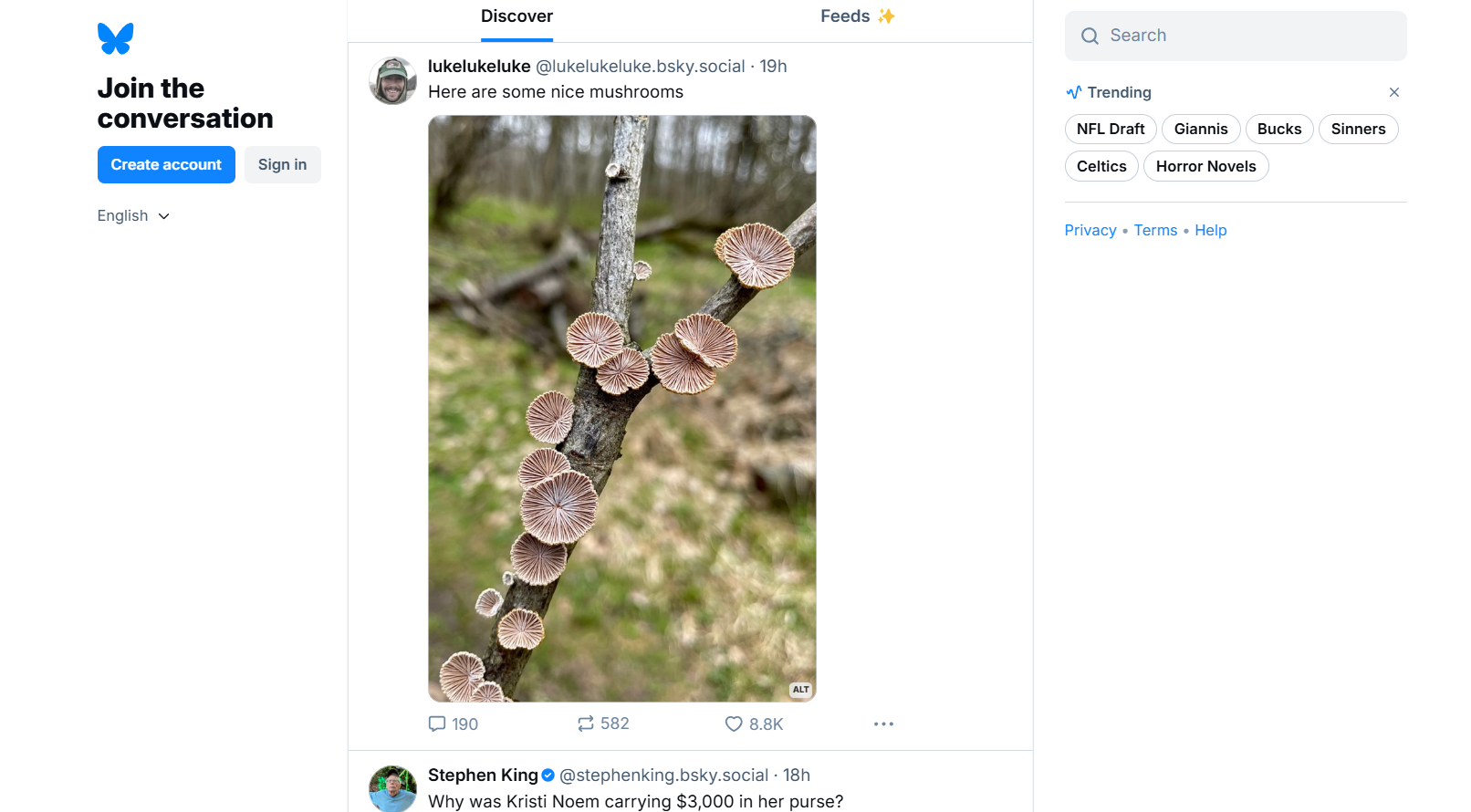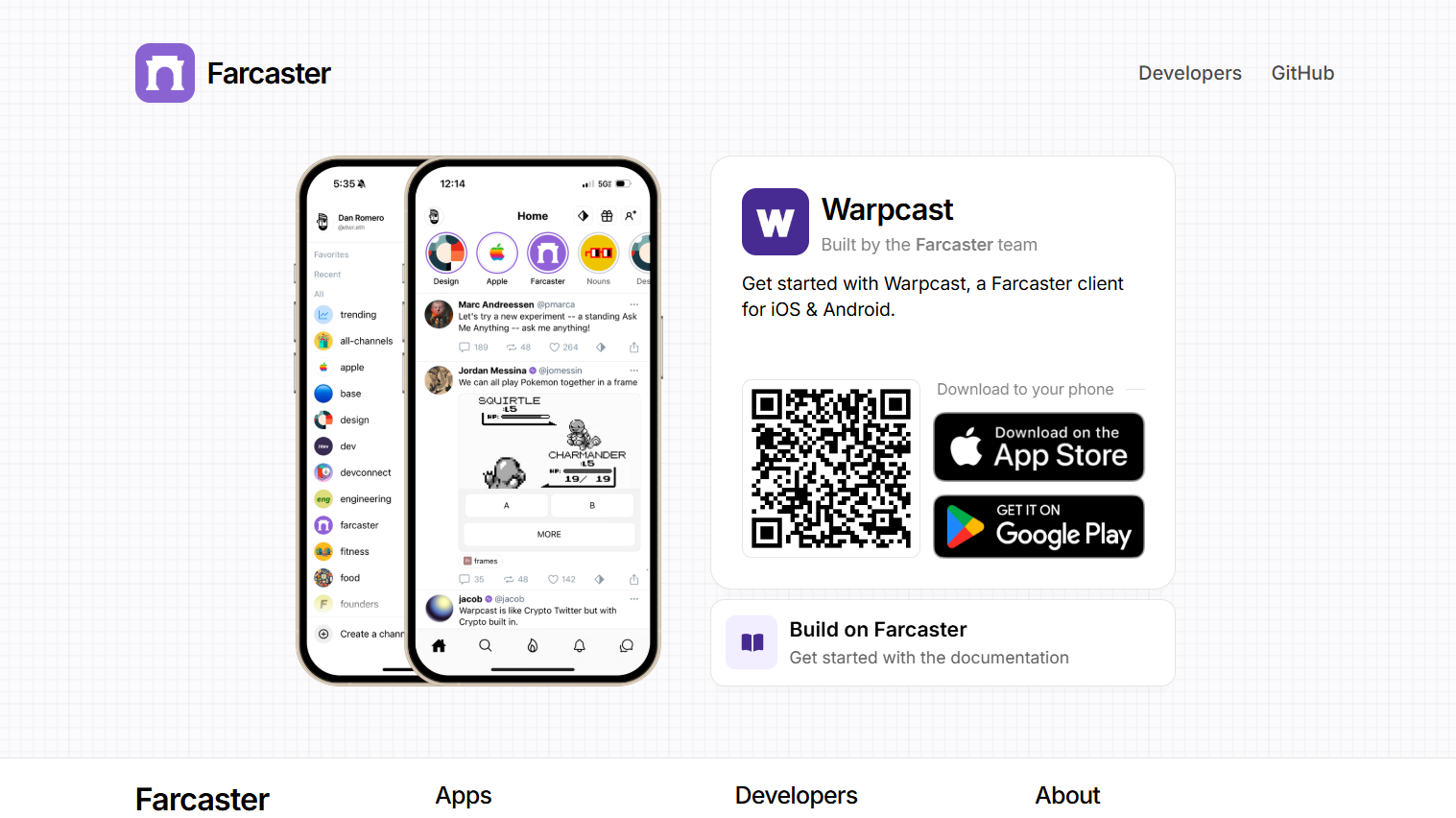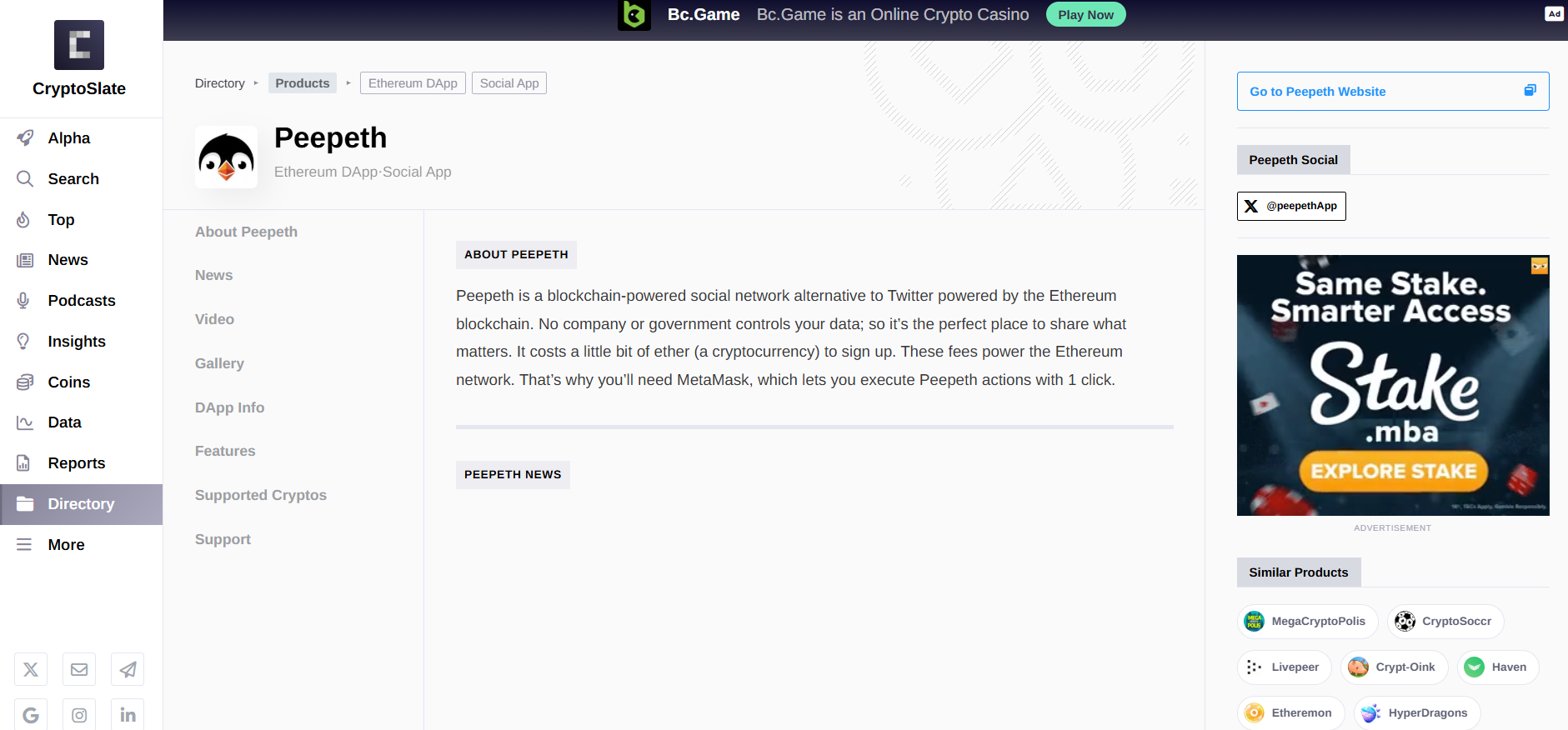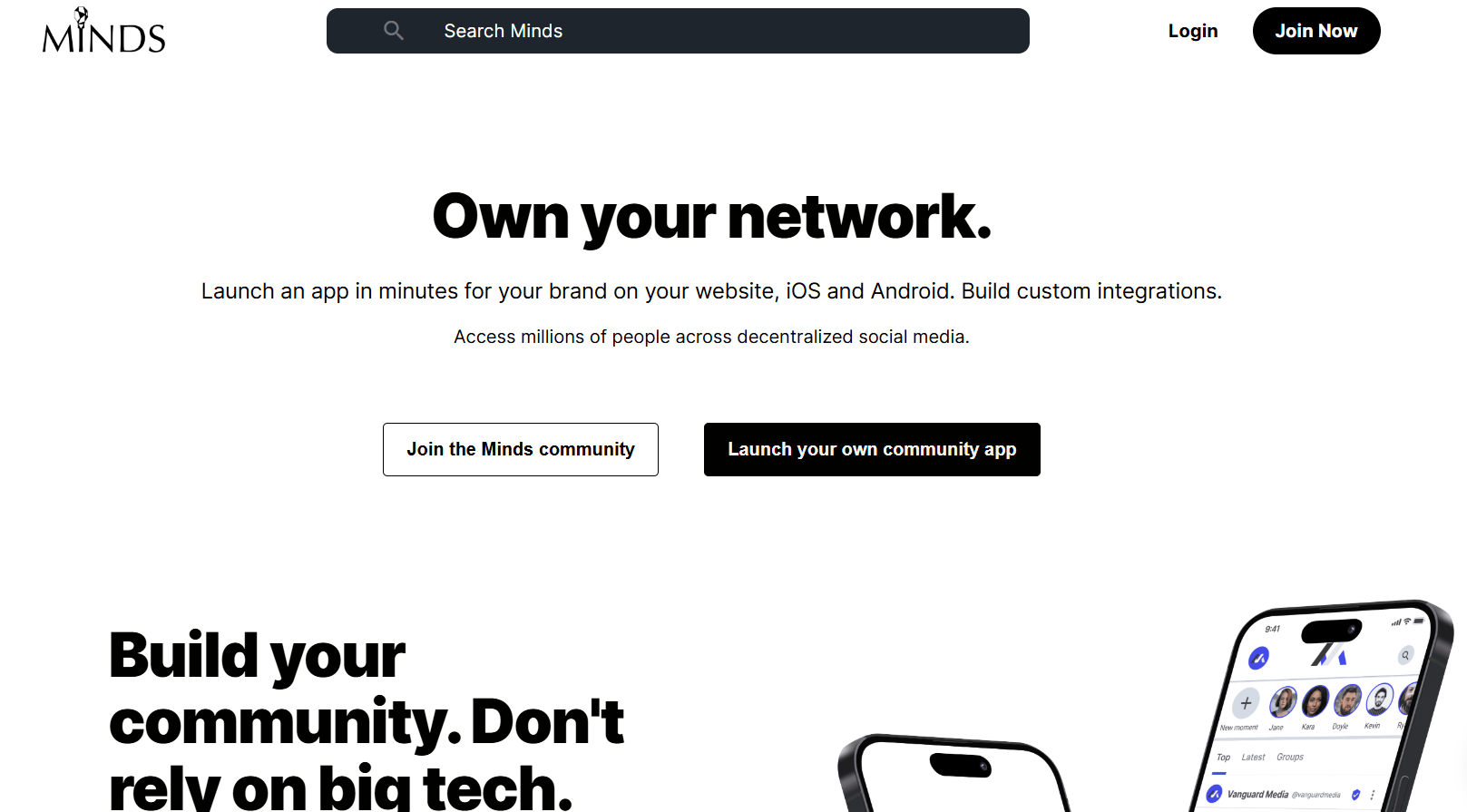Get insights.
Unlock value.
- 14-day free trial
- Set up in minutes
- No credit card required
5 Reliable Decentralized Alternatives For Twitter
As I was thinking deeply about the content for this blog, I wondered if I should call it Twitter or X. I asked this question: after Elon Musk purchased Twitter, he renamed it X.
Finally, I settled on calling it Twitter throughout this blog.
Numerous social media platforms exist, such as Facebook, Instagram, Twitter, and Reddit. But why do I need a decentralized social media alternative? More specifically, why is there a need for a decentralized Twitter alternative? I will discuss this in the next section.
Grab a cup of coffee. Let’s start.
Need for Decentralized Twitter Alternative
With Elon Musk's recent ownership of Twitter, people who are protective of their privacy need a Twitter Alternative.
In a few essential aspects, decentralized Twitter-like platforms are better alternatives to centralized social media like Twitter. While these platforms offer more privacy and security, many users still prefer using traditional platforms. For those who continue to engage with Twitter, it’s helpful to know how to easily download Twitter videos.
Decentralized platforms are much celebrated for the following reasons.
- More privacy-focused
- Democratic governance model
- More censorship resistant
- Crypto Monetization
- Data security
Although the above reasons are valid for adopting decentralized social media platforms, they are pretty much the same reason for adopting decentralized Twitter.
I will discuss 5 important Twitter alternatives that have gained adoption in recent years.
Website | Notable Features | Best For | Cons |
BlueSky | • AT Protocol (open & federated) • Public sign-ups since Feb 2024 • iOS/Android apps • Posts called “skeets” | Users who want a familiar Twitter-like feel with future federation | Early-stage; most data still on BlueSky PBC servers; no direct messages yet; small network compared with Twitter |
Farcaster | • Ethereum/L2 social protocol • Wallet-based identity • Warpcast mobile/web client • On-chain usernames & reactions | Crypto-savvy users & developers who need composable social graphs | Requires crypto wallet; some paid on-chain actions; technical onboarding; limited mainstream reach |
Mastodon | • Fully open-source • Thousands of independent servers (“instances”) • 500-char “toots” • ActivityPub federation | Privacy advocates, academics, journalists, activists | Fragmented experience across servers; discovery friction; moderation rules differ by instance |
Peepeth | • Data stored on Ethereum + IPFS • One-time ETH fee to join • 130-char posts • “Enso” likes | Users wanting immutable, on-chain micro-blogging | Must pay gas to sign up (and for some actions); very small user base; feature-light compared with mainstream platforms |
Minds | • Open-source network • Earn MINDS tokens for engagement • Groups, blogs, video, chat • Optional blockchain for content & rewards | Creators seeking crypto monetization and open governance | Smaller audience; occasional UX glitches; moderation criticized as inconsistent |
BlueSky
Jay Graber, co-founder of Twitter, has a very good experience building and managing Twitter. He himself felt the need for a decentralized alternative to Twitter which made decentralized Twitter alternative BlueSky.

Jay Graber currently heads BlueSky as its chief executive officer. BlueSky started hiring its first employees in 2021.
Initially, the platform was very protective, offering only registrations with an invite. Soon, the platform made a wonderful decision to accept public registration, which started in February 2024.
BlueSky has iOS and Android apps, further fueling the increase in registrations.
Posts on this microblogging platform are called skeets, a play on the words sky & tweets.
BlueSky paves the way for a democratic governance model in the social microblogging space.
Let’s move on to discussing the next alternative.
Farcaster
There are many cases of tweets being removed from Twitter that allude to privacy guidelines. Thus, Twitter is owner-controlled rather than user-controlled. This is a reason for widely celebrating decentralized Twitter alternatives like Farcaster.

Most of you are aware that Coinbase is a cryptocurrency exchange platform. After their job stint at Coinbase, two executives moved to create the decentralized open protocol named Farcaster. The founders are Dan Romero and Varun Srinivasan.
This open protocol supports many clients and encourages the creation of more clients with its comprehensive developer documentation. Warpcast is one such client for accessing Farcaster, and it has been gaining momentum recently.
Warpcast resembles the social microblogging platform Twitter.
Warpcast creates posts called casts (similar to tweets) and recasts (similar to retweets)
Like BlueSky, the Warpcast client app is available for iOS and Android.
Farcaster stays true to decentralization ethos and stands tall as another strong Web3 alternative to Twitter.
Let’s move to discuss Mastodon.
Mastodon
From BlueSky’s skeets and Farcaster’s casts to Mastodon’s Toots, naming imaginations had no borders. In this, yet another decentralized Twitter alternative, Mastodon, posts are called Toots.

Eugen Rochko, a Russian-born German software developer, paved the way for the existence of the Mastodon. A mastodon is a large animal similar to the Elephant that existed almost 10,000 years ago.
Rochko’s Mastodon is a free, open-source software that follows decentralized ideologies.
This platform allows users to turn their accounts private.
A standard Mastodon instance has a 500-character limit, reminiscent of Twitter’s 280-character limit.
Mastodon is widely used by academic institutes, journalists, hobbyists, and activists
Musk’s acquisition of Twitter fueled an increase in Mastodon users.
It is to be noted that there was a Ban on Mastodon links on Twitter, which Elon later confessed was wrong. This ban was later raised.
Decentralized platforms like Mastodon’s are journeying towards data security.
How about discussing Peepeth next?
Peepeth
If you consider that BitCoin was the first iteration of blockchain (i.e., blockchain 1.0), then Ethereum can be thought of as blockchain 2.0. Ethereum has smart contract capabilities that allow it to create decentralized applications.

Peepath is a decentralized application that stores data on the Ethereum BlockChain and IPFS (Inter-Planetary File System). IPFS is used to store and share data in a distributed file system.
It costs a bit ether to sign up in Peepeth. This fee is used to power the Ethereum network.
The data you share on the platform is complete; anyone can create a reader/writer client for Peepath. This application gives you ownership and control over your data.
Peepath was launched by Bevan Barton in 2018. Bevan is a full-stack BlockChain developer who worked on the application's minute details and succeeded in making It.
Just like already discussed skeets, casts, and toots, enso is another crafted word to call likes in Peepath, as in Twitter. Each post in Peepath is limited to 130 words.
The open-data nature of Peepath paves the way for a genuinely democratic governance model of the application.
Minds
Minds is an open-source and decentralized network.
American Internet Entrepreneur Bill Ottman is the CEO and co-founder of Minds. Bill Ottman studied English at the University of Vermont. John Ottman is also a co-founder.

Because the platform is open-source, anyone can add to and improve it. This means anyone can create his own social network with Minds.
What I love most about Minds is that it rewards you for using the network.
The users can earn crypto for their contributions to the network, thus paving the way for crypto monetization. You can earn points by viewing, following, voting, and doing other things you usually do on social networks. You can, in turn, use those points to promote your posts.
Minds crossed 200K+ active users and 1.25M+ registered users and successfully counted the total number of users.
Like any other social media, you should create your profile with a picture and bio. You can also add links to your website. Minds' defining factor is that it utilizes BlockChain to enhance user experience.
Let’s move on to final thoughts.
The Last Word
I hope you have a good understanding of decentralized Twitter alternatives. These Twitter alternatives offer numerous advantages of decentralized systems.
I want to once again reiterate the importance of using a decentralized network. It is privacy-focused and has a democratic governance model. It provides the utmost security for your data and prevents censorship. A few decentralized platforms also help you earn crypto rewards for your contribution.
Try using decentralized Twitter alternatives like BlueSky, Farcaster, Mastodon, Peepath, and Minds and have a first-hand experience. You can contact me through [email protected] and give feedback about your experience with these platforms. Let me know if you feel like adding more platforms to the list.
All the best in using a decentralized alternative to Twitter.
5 Reliable Decentralized Alternatives For Twitter FAQ
What are decentralized alternatives for Twitter?
Decentralized alternatives for Twitter are social media platforms that operate on a decentralized network, allowing users to have more control over their data and content.
How do decentralized alternatives for Twitter work?
Decentralized alternatives for Twitter use blockchain or peer-to-peer networks to distribute data and power among users, eliminating the need for a centralized authority to control the platform.
What are the benefits of using decentralized alternatives for Twitter?
Using decentralized alternatives for Twitter provides enhanced privacy, censorship resistance, and user control over data and content. It also reduces reliance on a single company or entity.
Are decentralized alternatives for Twitter user-friendly?
While some decentralized alternatives for Twitter may have a learning curve, efforts are being made to develop user-friendly interfaces and experiences similar to centralized platforms.
Can I still connect with my existing Twitter contacts on decentralized alternatives?
It depends on the specific decentralized alternative you choose. Some platforms allow for importing contacts from other social media platforms, while others may require building connections from scratch.
Get insights.
Unlock value.
- 14-day free trial
- Set up in minutes
- No credit card required
